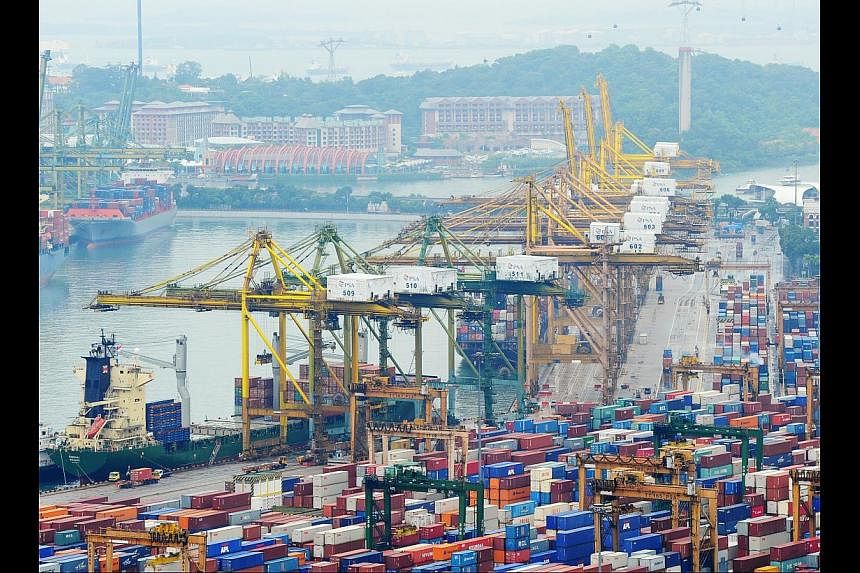The surprisingly slow global economic recovery was the cue for local economists to drastically cut their forecasts for Singapore's export performance this year.
Exports had earlier been expected to climb 4.1 per cent for the year but that prediction was slashed to a 1.1 per cent slide in a Monetary Authority of Singapore (MAS) survey of 22 private-sector economists last week.
Economists told The Straits Times last week that the dramatic turnaround in their estimates stemmed from falling demand for the type of electronic products made here.
And although restructuring efforts are making services a bigger component of the economy, activity in this sector is not reflected in export data.
The Government's official forecast is for exports to shrink by between 1 per cent and 2 per cent this year compared with last year, after they tumbled a worse-than-expected 6 per cent last year.
"Uneven economic growth around the world has led to see-sawing export growth from around the region... Singapore is not alone in seeing less-than-inspiring export growth in 2014," said CIMB economist Song Seng Wun.
He said that Singapore's electronic exports in particular continued to struggle, partly due to the "still soft" demand for products such as disk drives and semi-conductors.
Exports of non-electronic products were slightly better this year but not enough to offset the drop in electronics, Mr Song added.
The electronic industry makes up about a third of the manufacturing sector, which in turn accounts for a fifth of economic output.
It would take an "almighty lift" from non-electronic exports for overall non-oil domestic exports to grow this year, he noted.
Bank of America Merrill Lynch economist Chua Hak Bin said that pharmaceutical exports have also been poor, although that has been somewhat mitigated by a better showing in petrochemicals and chemical products.
He noted that the earlier, more optimistic forecast of 4.1 per cent growth in exports was based on an expected pick-up in external demand but that has been slower than expected.
A recovery in the United States has been "less import-intensive, not providing as strong a lift to Asian exports as in the past", Dr Chua said.
"Slower China growth is also weighing on Asia's and Singapore's export performance."
Another issue is that economic restructuring and stricter foreign worker policies are also hurting labour-intensive industries such as manufacturing, which may be losing competitiveness, he added.
But other economists note that some manufacturers still continue to invest here even though they know Singapore is not the cheapest place, indicating that the country still retains some of its competitive edge.
Mr Song said a drop in exports does not automatically indicate that the economy is losing competitiveness.
"Manufacturers which are still in Singapore or coming to Singapore know that Singapore is never going to the cheapest place to plonk a factory down," he said.
"Since investments are still going into manufacturing, though less in the last two years - due in part to the lingering uncertainties over the strength of the global rebound - I expect a rebound in global demand to lead to stronger export growth from Spore and around the region."
Exports in the first seven months this year were 2.4 per cent lower compared with the same period last year. The contraction also worsened in the second quarter from the first: Shipments were down 1 per cent in the January to March period compared with the same period a year earlier, but slumped 3.4 per cent year on year in April to June.
However, economists noted that if Singapore's economy shifts more towards services, exports of goods would naturally dip.
"Restructuring is accelerating the shift towards a services-based economy," Dr Chua said.
OCBC economist Selena Ling pointed out that "there could be a shift to some manufacturing-related services activities" such as chip design. Such services add value but are not reflected in exports data, she said.

